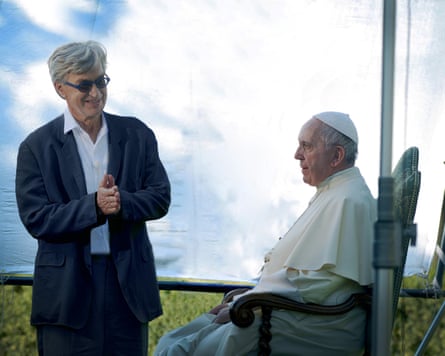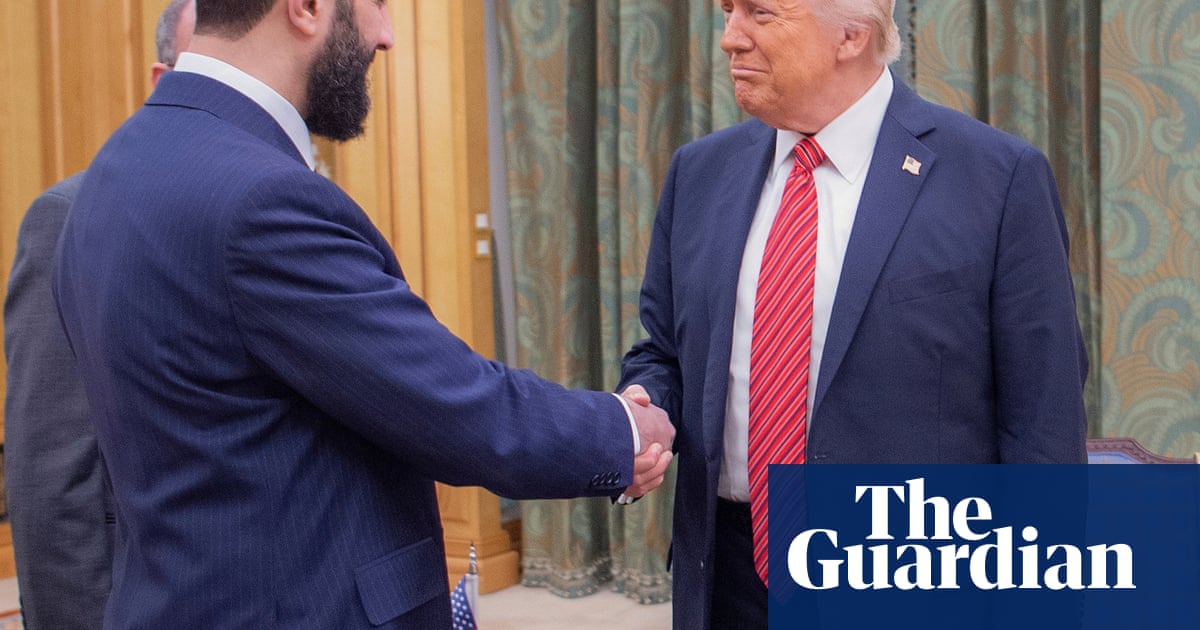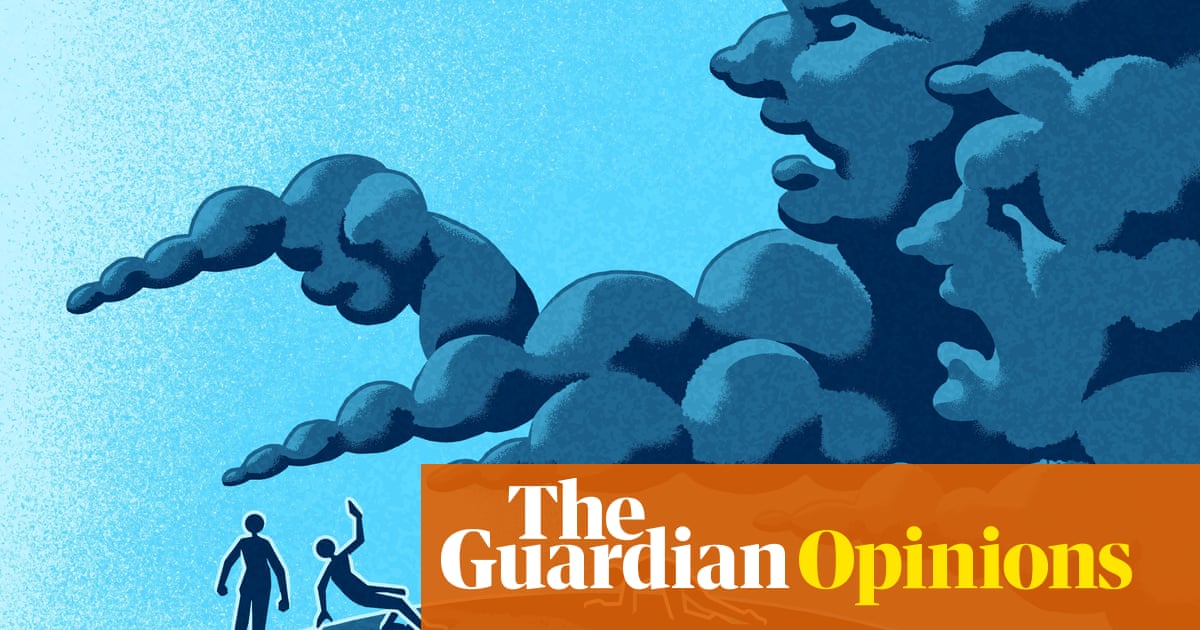Last month, a few weeks into the random detentions and denied entries at the US border, I was supposed to go to Princeton University as a guest lecturer to discuss global fascism. I asked the professors who invited me whether they thought it was safe to come. When I was in Turkey, European journalist friends once similarly asked me whether they’d be detained. And just as I did then, the American professors hesitated with half sentences: “Well, you know … ” It was decided that a law firm should be involved. After some back and forth, the final assessment remained unsettlingly ambiguous: “A detention is unlikely, but we cannot be sure.” Eventually, to be on the safe side, we choose the online option.
In the end all was fine on the surface, but I know from being on the other side of this story that the silk thread-like connection between us humans had been cut. They felt their land a shade darker, and I felt like giving up on the unfortunate in dire times. After all, I should know: this is how a country drifts into darkness – not by a dictator’s orders but rather by the outside world abandoning its people to their own means, by cutting millions of the threads that hold us as humanity together.
Meanwhile, what began as a shocking absurdity – academics, intellectuals and ordinary people with ideas being denied entry or sent to prison for weeks based on the search of their phone – quickly became ordinary. The unacceptable was normalised at such speed that, only a few weeks into the border crisis, the EU began issuing burner phones to its staff bound for the US. Some European countries warned their LGBTQ+ citizens to be cautious visiting the US in a tone akin to Tripadvisor travel tips. The charade began without warning and continues with absolute randomness. Trouble finds people as described in the assessment of my likely difficulties: “unlikely but not for sure”. And in that unsettling ambiguity lies the unique feature of today’s fascism.
Many of us – writers, thinkers and politicians – try to come up with a catchy term for today’s fascism. At the heart of it, I have come to think, lies not only the desire to analyse but also the urge to attract people’s attention so they are adequately alarmed. It may be an all too human urge to think: “If only we could find the right word, people would stop and listen. Perhaps then they’ll do something.” In fact, it is good old fascism, only with many new spectacles and glamorous gadgets, like an updated app with new features. One of these new features of 21st-century fascism is being cloud-like. After all, it is the political child of cloud capitalism.
The term was coined by the Greek economist and politician Yanis Varoufakis. He says there is a new economic system where big tech companies, particularly those operating in the cloud, have replaced traditional capitalist pillars like markets and profit with platforms and rents. This system is characterised by the creation of digital fiefdoms in which individuals, or fiefs, labour for these platforms. It is like in medieval times, but a techno version. Nobody, of course, throws themselves into this new form of slavery, yet things seemingly happen as if ordained by the natural order.

The term “cloud” reveals a lot about the world’s current reality. The cloudlike vagueness, fluidity and slipperiness of the system – its everywhereness but at the same time nowhereness – are quite like moving storm clouds. Right now it is in Turkey, operating through the imprisonment of Recep Tayyip Erdoğan’s political rivals; now it is in Israel, starving Palestinian children. After appearing on the Italian shores to push back refugees to the sea, it suddenly shows up in the US, raining on a new land through the border police. Cloud fascism has infinite hands committing unpredictable crimes with the randomness that we all try to catch up with and adapt to. Like the cloud fiefs, we get on with it. And after a short while we lose our ability to be shocked, unwillingly normalising the cloud, as if now it is a natural phenomenon we must live with. As if the cloud simply is. Just don’t take your phone with you to the US. Buy a burner. No big deal. If there is a cloud, get an umbrella and walk faster past those who do not have one.
The late Pope Francis called this umbrella attitude “global indifference”. He often referred to human dignity as the last defence line of human morality against the indignities of our present political and economic reality. As I perceive it, he didn’t mean only the dignity of the poor being broken by inequality. Dignity, as a central human value that unifies all of us, can be damaged in several other ways. Those who can afford the umbrellas to protect themselves from cloud fascism, who without any protest buy the burner phone, have their dignity broken too, even if they numb their heart not to feel it. The late pope didn’t stop at pointing out the wounded dignity of humanity; he alluded to civil resistance when he said that when the laws are not good enough, one can go against them to be on the side of the greater good.

Finally, in Wim Wenders’s documentary about him, he said: “Revolution. Don’t be afraid of the word.” A word that for a while has been accompanied by a smirk or a sarcastic air-quote hand gesture even in progressive intellectual circles. That smirk is the sign of our loss of faith in humanity and the beginning of our submission to the darkest cloud. Whereas the pope smiled when uttering the word – big difference.
This cloud of ours, this cloud fascism, is travelling the planet, showering us with acid rain. Yet each time it appears in a country, the citizens of the land behave as if it is the first time and only happening to them. The repeating astonishment marks the beginning of our retreat – and believing that a big enough umbrella, made solely for our nation, can save us is the dawn of our defeat. The question is whether we will blow away the cloud before the ultimate surrender. What stands between us, humanity and the dark cloud is the question of faith. Not in God, perhaps, but in the divinely joyous entity that materialises when people come together to defend their dignity. A cloud of resistance that is as random, fluid and unpredictable as cloud fascism. What can stop this acid rain is the everywhereness of the cloud resistance of human dignity. I am not saying revolution – well, after all, I am not the pope. May he rest in joy of dignity.
-
Ece Temelkuran is a Turkish journalist and political commentator, and author of How to Lose a Country: The 7 Steps from Democracy to Dictatorship

 1 month ago
491
1 month ago
491

















































